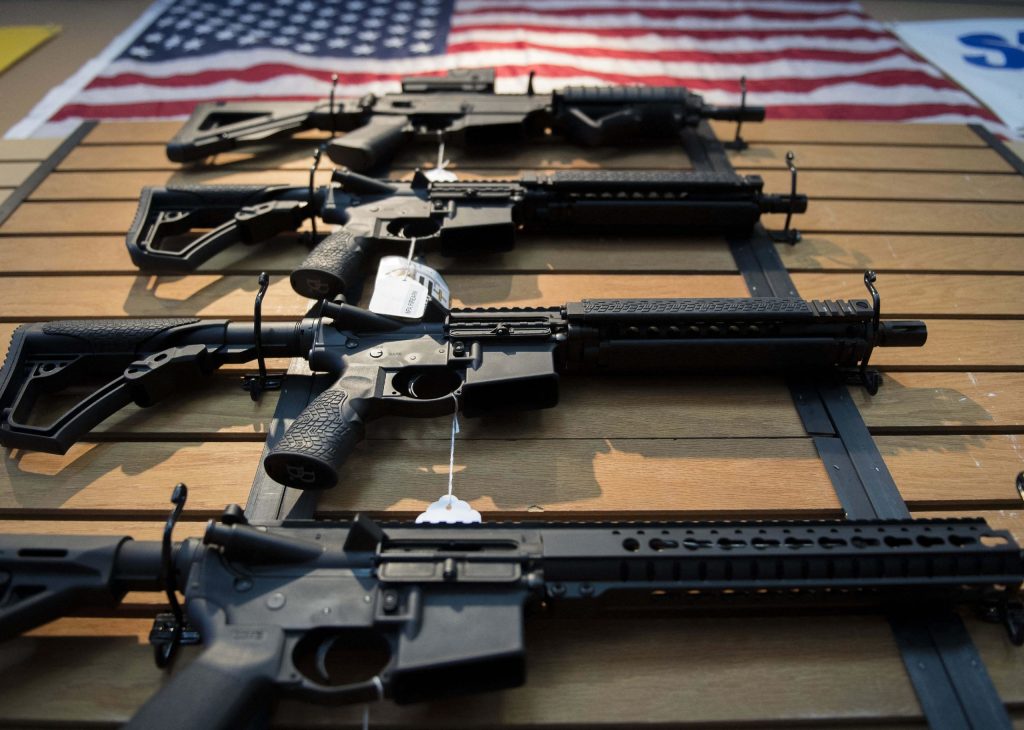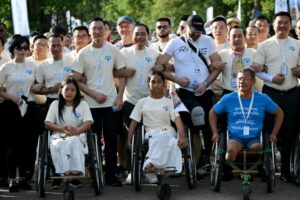Chicago community intervention reduces gun violence

Stacker compiled Bureau of Alcohol, Tobacco, Firearms and Explosives firearms trace data to see which states had the most trace requests tied to them in 2021.
– Jim Watson/AFP // Getty Images
Gun violence presents a horrendous blight upon any civilised society and this is certainly the case with many parts of the U.S. The ‘freedom’ to own guns has led to some horrific shootings and policy makers have been grappling for decades to develop solutions to address gun violence.
New research shows large reductions in gun violence involvement for participants of a Chicago-based community violence intervention (CVI) programme. The study shows a steep drop in arrests for violent crime among programme participants. This was one of the first times that empirical evidence on the effectiveness of CVI programmes has been provided at the individual level.
CVI programmes seek to address firearms violence by centring local expertise and circumventing encounters with the criminal justice system.
These findings come from Northwestern University’s Center for Neighborhood Engaged Research and Science (CORNERS). Here researchers evaluated outcomes for the Chicago CRED (Create Real Economic Destiny) programme and found that those who completed the full program were more than 73 percent less likely to have an arrest for a violent crime in the two years following enrolment compared to individuals who did not participate.
By analysing program participation, the researchers discovered that whilst all CRED program participants experienced some programmatic benefits, those who had completed the full 24-month program had the best outcomes.
The researchers found that although the rate of firearms victimization remained statistically unchanged during the study period, CRED participants were significantly less likely to engage in assaults, robberies, shootings and other gun-related violence.
Commenting on the study outcomes, principal investigator Andrew Papachristos said: “CRED changed participants’ involvement in ways that were under their direct control. They were less involved in gun assaults and related behaviour that they themselves initiated. Yet the sheer scale and complexity of gun violence means that even such changes in the behaviour of a few hundred CRED participants is insufficient to protect them from violent victimization.”
The study compared a sample of 324 men recruited by CRED outreach staff from 2016 to 2021 with a balanced comparison sample of 2,500 men from a network of individuals arrested in CRED’s service areas.
The researchers then conducted a statistical analysis to evaluate CRED’s effect on individual violence-related outcomes on three levels of treatment: all enrolled participants, a subsample that made it through the initial phase, and those that completed the programme.
The researchers also offered some recommendations for lowering the rate of firearm victimization. These include the need to address the barriers to programme participation, although they point out that changing individual behaviour is not enough, since CVI efforts should be combined with larger efforts in the community such as economic development and safety.
The findings appear in the journal Proceedings of the National Academy of Sciences, titled “Evaluating the impact of a street outreach intervention on participant involvement in gun violence.”
Chicago community intervention reduces gun violence
#Chicago #community #intervention #reduces #gun #violence





